Tips Articles
2026.03.01

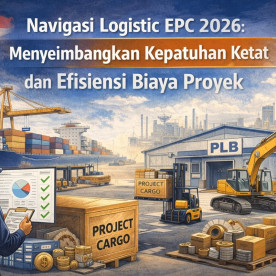
Following global manufacturing peaks such as Lunar New Year, project cargo volumes at major ports often fluctuate sharply. 2026.02.16
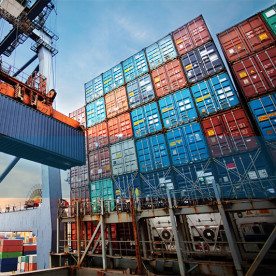
Recent enforcement actions demonstrate a stronger commitment to transparency, accountability, and integrity within the national trade system. 2026.02.09
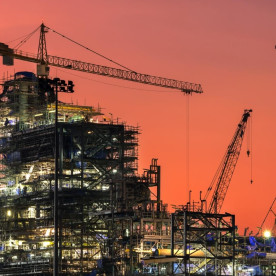
Through Ministerial Regulations No. 1 of 2024 and No. 23 of 2025, the government defines steel importation not merely as trade, but as part of an industrial architecture that must be precisely planned, transparent, and compliant. 2026.01.24
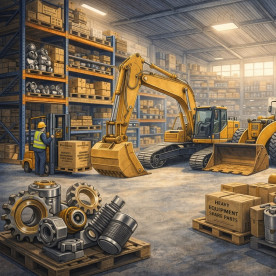
Yet in many organizations, spare parts logistics is still treated as a warehouse function rather than a business control system. 2026.01.17
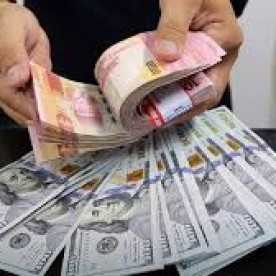
For companies dependent on imports, exchange rate movements are more than macroeconomic noise — they have direct implications on cost, cash flow, and inventory risk. 2026.01.06
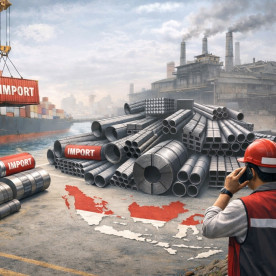
To some, it seemed like a typical protectionist move. But for industry players, it was a strategic signal about where global steel trade is heading in 2026. 2025.12.29
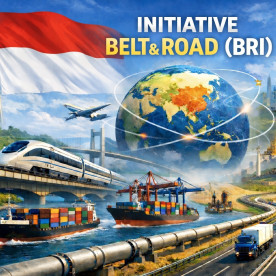
The deeper impact of the BRI lies in how it reshapes trade routes, supply chains, and the distribution of economic value across Asia. 2025.12.08
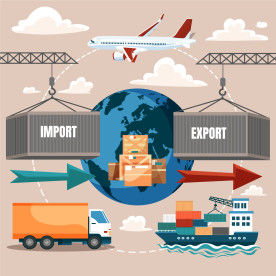
Accuracy in HS codes, customs values, and document consistency now define your compliance risk. 2025.11.30

The Minister of Finance personally inspected containers valued at only Rp117,000 on paper — but sold for Rp50 million in the market. That single case alone could have cost the state Rp220 million. 2025.11.24
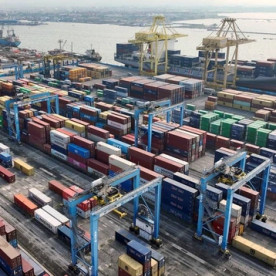
The government has enhanced monitoring, upgraded digital systems, and closed long-standing loopholes that caused revenue losses — from under-invoicing and HS code errors to non-compliant product standards. 2025.11.17
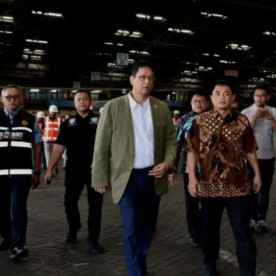
Audits now target not only those who intentionally manipulate data but also minor discrepancies often overlooked by importers who actually intend to comply.

Read this article
Navigating the May 2026 SNI Transition: A Strategic Imperative for EPC and Steel Importers
Indonesia is entering a decisive phase in strengthening national industrial standards. Through Ministerial Regulation (Permenperin) No. 23 of 2025, the government has introduced updated requirements for galvanized steel sheets (Bj LS) and aluminum-zinc coated steel sheets (Bj LSW). 2026.02.22
Read this article
Navigating EPC Logistics in 2026: Balancing Stricter Compliance with Project Cost Efficiency
Indonesia’s logistics landscape in early 2026 presents new challenges that demand adaptive strategies.Following global manufacturing peaks such as Lunar New Year, project cargo volumes at major ports often fluctuate sharply. 2026.02.16

Read this article
Surviving Uncertainty: Industrial Import Strategies Under Tightened Goverment Oversight
Public scrutiny of Indonesia’s customs governance has intensified.Recent enforcement actions demonstrate a stronger commitment to transparency, accountability, and integrity within the national trade system. 2026.02.09

Read this article
Permenperin 1/2024 & 23/2025: Why EPCs in 2026 Must Design Compliance into Projects from the Tender Stage
Over the past two years, Indonesia’s import policy for iron and steel has become increasingly clear.Through Ministerial Regulations No. 1 of 2024 and No. 23 of 2025, the government defines steel importation not merely as trade, but as part of an industrial architecture that must be precisely planned, transparent, and compliant. 2026.01.24

Read this article
Spare Parts Logistics as a Strategic Control System: How TCI Safeguards Uptime, Capital, and Trust
For executives and heavy equipment asset owners, spare parts are not just operational items — they are strategic instruments that determine three critical outcomes: equipment uptime, working capital efficiency, and risk control.Yet in many organizations, spare parts logistics is still treated as a warehouse function rather than a business control system. 2026.01.17

Read this article
Rupiah Volatility: Why Importers Lose Money Even Before Goods Are Sold
In recent weeks, the rupiah’s exchange rate volatility has once again drawn attention in Indonesia’s economic landscape.For companies dependent on imports, exchange rate movements are more than macroeconomic noise — they have direct implications on cost, cash flow, and inventory risk. 2026.01.06

Read this article
When Cheap Steel Floods the Market: Lessons from India’s Tariff Policy for Indonesia’s Steel Future
At the end of 2025, India took a decisive step: imposing tariffs on select imported steel products to curb the influx of cheap steel.To some, it seemed like a typical protectionist move. But for industry players, it was a strategic signal about where global steel trade is heading in 2026. 2025.12.29

Read this article
Indonesia at a Crossroads: Turning the Belt & Road Into a Long-Term Trade Advantage
China’s Belt and Road Initiative (BRI) is often discussed in Indonesia through the lens of infrastructure—high-speed rail, ports, industrial zones, and power plants. These projects are important, but they’re not the full story.The deeper impact of the BRI lies in how it reshapes trade routes, supply chains, and the distribution of economic value across Asia. 2025.12.08

Read this article
Secure Your Import Structure.
Under DJBC’s data-driven and risk-based monitoring system, importers can no longer rely on old habits.Accuracy in HS codes, customs values, and document consistency now define your compliance risk. 2025.11.30

Read this article
Check Yourself: How Customs Determines “Fair Value” — Your Essential Pre-Shipment Checklist
In the past week, Indonesian importers have faced a tough reality: your invoice value is no longer accepted as absolute truth.The Minister of Finance personally inspected containers valued at only Rp117,000 on paper — but sold for Rp50 million in the market. That single case alone could have cost the state Rp220 million. 2025.11.24

Read this article
Ready for Stricter Import Regulations: A Practical Guide for Indonesian Importers
In recent months, importers in Indonesia have experienced tighter regulations.The government has enhanced monitoring, upgraded digital systems, and closed long-standing loopholes that caused revenue losses — from under-invoicing and HS code errors to non-compliant product standards. 2025.11.17

Read this article
Compliance Isn’t Enough: Small Gaps That Can Lead to Big Findings in Indonesia’s New Import Oversight Era
Recent findings by Finance Minister Purbaya Yudhi Sadewa during inspections at Tanjung Priok and Tanjung Perak reveal that Indonesia’s import monitoring has entered a much stricter phase.Audits now target not only those who intentionally manipulate data but also minor discrepancies often overlooked by importers who actually intend to comply.